Every summer Population Education is fortunate to host interns from around the U.S. These students bring their talents and passions to the PopEd program by completing a wide variety of projects. The following blog was written by PopEd’s 2024 summer interns.
It’s officially summertime, so we’ve put together a summer reading list that explores a diverse array of literature on topics from classroom environmental justice strategies to neo-colonialism. These books entertain, enlighten, and challenge our perspectives, offering unique lenses through which to view the world. We invite you to join us in exploring the rich tapestry of voices and narratives that deepen our understanding of social, environmental, and racial justice.
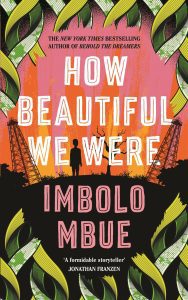 How Beautiful We Were by Imbolo Mbue
How Beautiful We Were by Imbolo Mbue
Set in the fictional African village of Kosawa, How Beautiful We Were tells the story of revolution and opposition in the face of modern colonialism. The central plot is around an oil spill by an American oil company that causes diseases among Kosawa villagers. Powerful political actors refuse to accept responsibility for the spill, meeting rebelling villagers with soldiers and a massacre rather than reparations. Cameroonian-American writer Imbolo Mbue shows the reality of many African countries fighting for environmental justice and against government and corporate corruption.
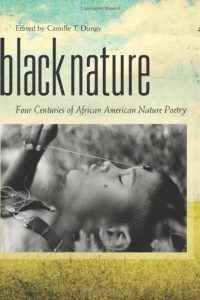 Black Nature: Four Centuries of African American Nature Poetry edited by Camille T. Dungy
Black Nature: Four Centuries of African American Nature Poetry edited by Camille T. Dungy
Black Nature is an anthology that honors the unique genre of nature poetry. Within this collection, Black poets incorporate their unique connection to the natural world in the beautiful language of verse and rhyme. This collection of 180 poems, including works from Melvin B. Tolson, Yusef Komunyakaa, and Sterling Brown, puts race and belonging in conversation with nature and the environment. These poets contextualize nature through the lens of the Black community, a lacking viewpoint in perspectives on the natural world.
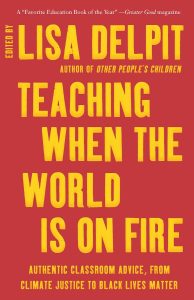 Teaching When the World Is on Fire: Authentic Classroom Advice, from Climate Justice to Black Lives Matter edited by Lisa Delpit
Teaching When the World Is on Fire: Authentic Classroom Advice, from Climate Justice to Black Lives Matter edited by Lisa Delpit
Teaching When the World Is on Fire authentically equips educators to navigate complex social issues, fostering inclusive dialogue and addressing topics like climate change and racial justice with compassion and conviction. With invaluable insights and practical strategies, this book provides hope and inspiration for educators. It ignites passion and purpose, offering not just guidance but a powerful rallying call to empower students and confront pressing societal issues with empathy and courage.
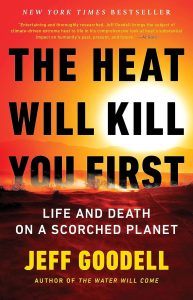 The Heat Will Kill You First by Jeff Goodell
The Heat Will Kill You First by Jeff Goodell
This non-fiction work by environmental journalist Jeff Goodell explores the scientific and social effects of climate change. From malnutrition to disease outbreaks, The Heat Will Kill You First details how heat affects the human body through a chronology of historic heat waves and intimate accounts of people who have died in extreme heat. Serving as a call to action, Goodell encourages society to prioritize and address climate change to protect our health and the longevity of the planet.
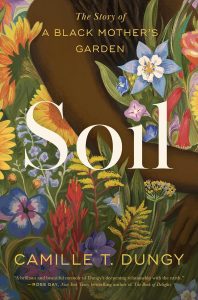 Soil: The Story of a Black Mother’s Garden by Camille T. Dungy
Soil: The Story of a Black Mother’s Garden by Camille T. Dungy
Living in the predominately-white town of Fort Collins, Colorado, Camille establishes roots in her Blackness and passion towards nature through the growth of her garden. Soil: The Story of a Black Mother’s Garden is a memoir about Dungy’s experience developing her garden. While her new community has restrictions regarding what could be planted in her garden, Camille pushes those boundaries and plants various crops, noting how homogenous conversations about the environment have stunted progression in protecting it. Dungy captures the complexity in navigating racial landscapes, ancestry, history, and intersectionality through her seven-year recount of this journey.
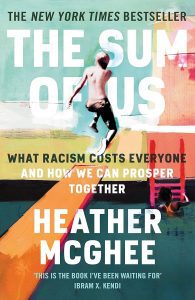 The Sum of Us: What Racism Costs Everyone and How We Can Prosper Together by Heather McGhee
The Sum of Us: What Racism Costs Everyone and How We Can Prosper Together by Heather McGhee
Through compelling narratives, persuasive arguments, and thorough analysis, The Sum of Us urges readers to confront inequality and embrace the transformative power of collective action. This New York Times bestseller vividly illustrates how racist ideologies have led to unequal access to essential resources and services, from substandard infrastructure in marginalized communities to discriminatory policies that perpetuate disparities in education and healthcare. The Sum of Us is an exploration of the human experience, stirring a spectrum of emotions from indignation to hope, making it an essential reading for those committed to understanding and addressing systemic injustices.
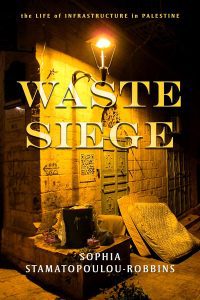 Waste Siege: The Life of Infrastructure in Palestine by Sophia Stamatopoulou-Robbins
Waste Siege: The Life of Infrastructure in Palestine by Sophia Stamatopoulou-Robbins
Through a nuanced exploration of waste management’s socio-political dimensions, this book sheds light on how infrastructure shapes existence and resistance under occupation, compelling readers to look deeper into the intersections of environmental justice and geopolitics with empathy and solidarity. Waste Siege: The Life of Infrastructure in Palestine is a journey into the resilience and challenges of Palestinian life. It immerses readers in daily struggles and triumphs, evoking a sense of urgency to understand and confront the injustices woven into infrastructure systems.
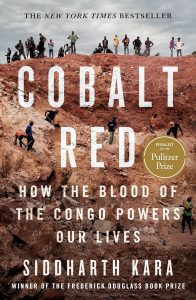 Cobalt Red: How the Blood of Congo Powers our Lives by Siddharth Kara
Cobalt Red: How the Blood of Congo Powers our Lives by Siddharth Kara
Cobalt, a silvery metal used in lithium-ion batteries for phones, electric vehicles, and laptops, is mainly found and mined in the Democratic Republic of Congo (DRC). In Cobalt Red, Kara provides detailed insights into the cobalt industry in the DRC and its exploitation. The abusive working conditions, environmental neglect, and health effects of cobalt mining on Congolese citizens are exposed, urging readers to pay attention to the mining crisis in DRC.
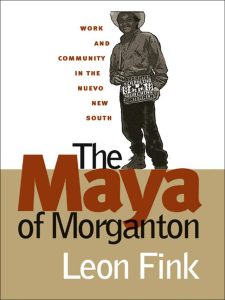 The Maya of Morganton: Work and Community in the Nuevo New South by Leon Fink
The Maya of Morganton: Work and Community in the Nuevo New South by Leon Fink
The Maya of Morganton: Work and Community in the Nuevo New South is a captivating story of resilience and cultural vibrancy. It takes a deep dive into the experiences of Maya immigrants in a North Carolina town, painting a vivid picture of their contributions to the local economy and cultural tapestry. Through rich storytelling, this book captures the heart and soul of a community shaped by adversity and cultural exchange, inspiring readers with the profound resilience and richness of the immigrant experience in the American South. This is an essential reading for anyone seeking to understand the intricate dynamics of migration, labor, and community building in a rapidly changing landscape.
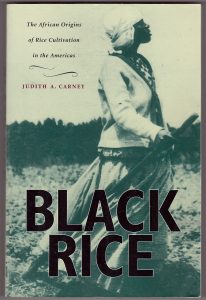 Black Rice: The African Origins of Rice Cultivation in the Americas by Judith A. Carney
Black Rice: The African Origins of Rice Cultivation in the Americas by Judith A. Carney
Exploring the fascinating history of rice cultivation, this book traces its African roots and its transformative role in shaping agricultural practices, making it an enlightening read for those passionate about food history and the dynamics of the African diaspora. Black Rice: The African Origins of Rice Cultivation in the Americas is a journey through the rich tapestry of heritage and sustenance. It skillfully weaves together tales of resilience and innovation, celebrating the profound impact of African contributions to the culinary landscape of the Americas.
Books to Open Your Mind
We hope that you walk away from these books with a revitalized sense of appreciation, awareness, and activism. Enjoy reading and enjoy your summer!


